 CENTRAL ENGLAND: Mike Wheeler's concert reviews from Nottingham and Derbyshire feature high profile artists on the UK circuit - often quite early on their tours.
CENTRAL ENGLAND: Mike Wheeler's concert reviews from Nottingham and Derbyshire feature high profile artists on the UK circuit - often quite early on their tours.
A Triumph on Every Conceivable Level
MIKE WHEELER reviews a production of Monteverdi's 'L'Orfeo' which merges cultural worlds
Opera North's second dip into the Orpheus myth this season was a co-production of Monteverdi's L'Orfeo with South Asian Arts-uk, also based in Leeds. Directed by Anna Himali Howard, the two cultural worlds came together in a seamless merging that succeeded brilliantly - Theatre Royal, Nottingham, UK, 12 November 2022.
Two cases in point - the opening Toccata, where the Indian musicians took the first repeat, which sounded as though Monteverdi had written it for them all along; and the Act V duet for Orpheus, Nicholas Watts, and Apollo, Kirpal Singh Panesar, who also played the bowed string instrument the esraj throughout the opera. Leslie Travers' designs placed the action in the back garden of a council house - in Leeds, presumably - neatly making the point that mythic events can happen anywhere - with the instrumentalists on stage surrounding the acting area.
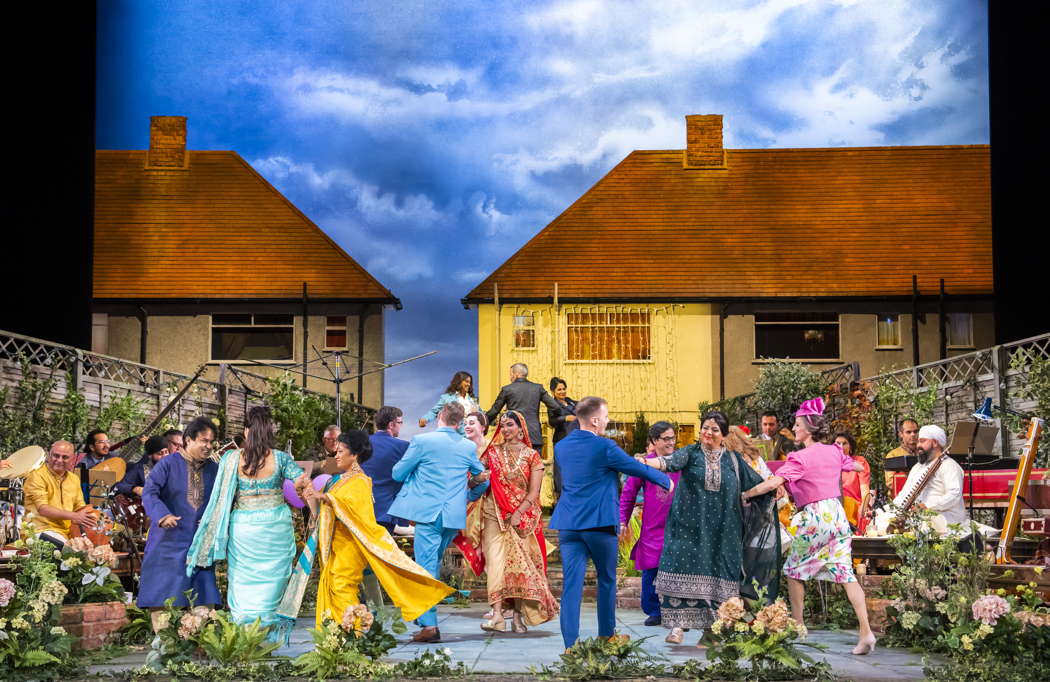
The Orpheus company in Opera North's production of Orpheus with music by Claudio Monteverdi and Jasdeep Singh Degun. Photo © 2022 Tristram Kenton
The Prologue was shared by Amy Freston and Deepa Nair Rasiya, at first alternating, then blending endearingly. The wedding celebrations filled the stage with colour and movement, with Nicholas Watts and Ashnaa Sasikaran's Eurydice a fresh-voiced couple.
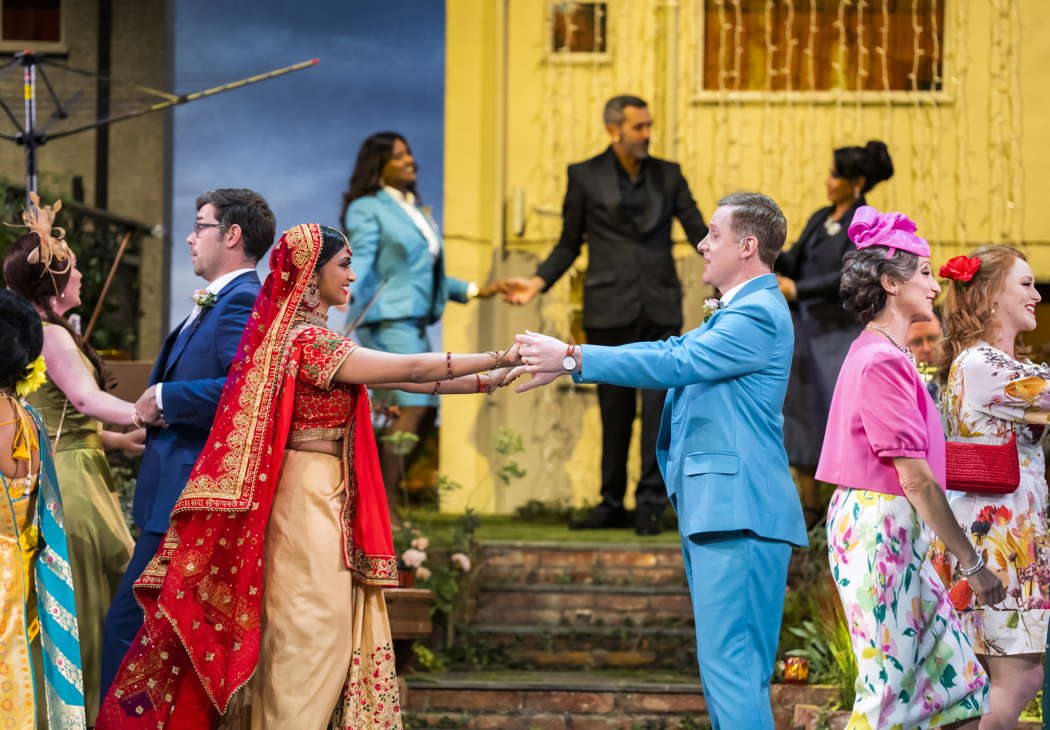
Nicholas Watts as Orpheus and Ashnaa Sasikaran as Eurydice with the Orpheus company. Photo © 2022 Tristram Kenton
Sanchita Pal was compelling as the apsarā (nymph) who invokes the blessing of Hymen, the god of marriage.
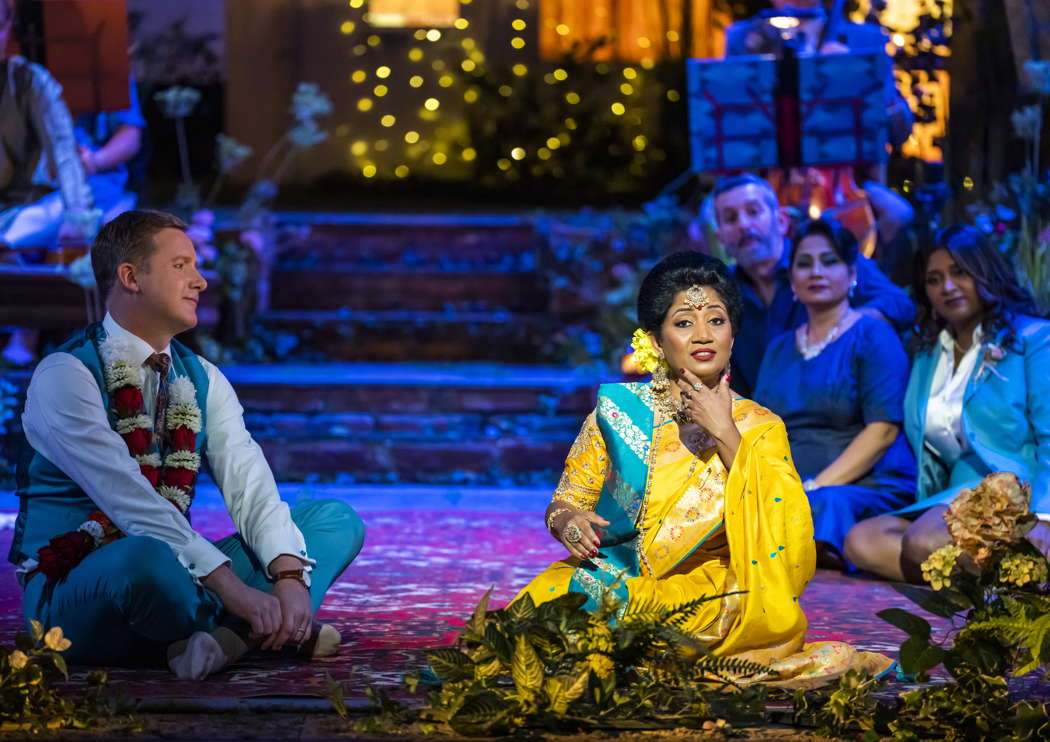
Nicholas Watts as Orpheus and Sanchita Pal as the apsarā. Photo © 2022 Tristram Kenton
The Messenger's Act II entry with the awful news of Euridice's death is always a stunning moment, and Kezia Bienek made sure it had its full impact. She entered carrying Euridice's sari, which she handed to Orpheus.
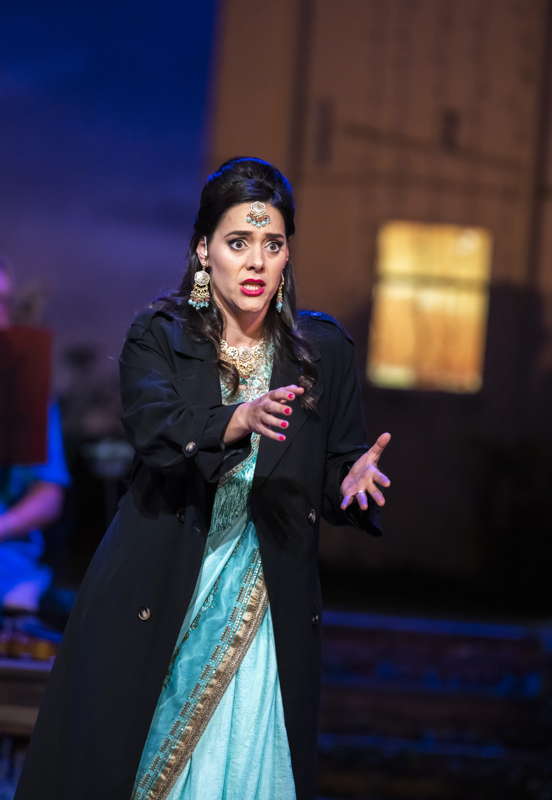
Kezia Bienek as Silvia (The Messenger). Photo © 2022 Tristram Kenton
He sat cradling it for much of the rest of the act, finally walking slowly off, letting it unwind, trailing across the stage where, in Act III, it symbolised the River Styx, a superb stroke of directorial imagination.
Yarlinie Thanabalasingam was a sympathetic Nambikkai (Hope), leading Orpheus to the river, and to Kaviraj Singh's sternly obstructive but also mischievous ferryman Caronte.
If the Messenger's monologue is the first great aria in the operatic repertoire, Orpheus's 'Possente spirto', his plea to Caronte, is the second, and Nicholas Watts made it every bit as momentous as we would expect, with spot-on embellishments to the vocal line.
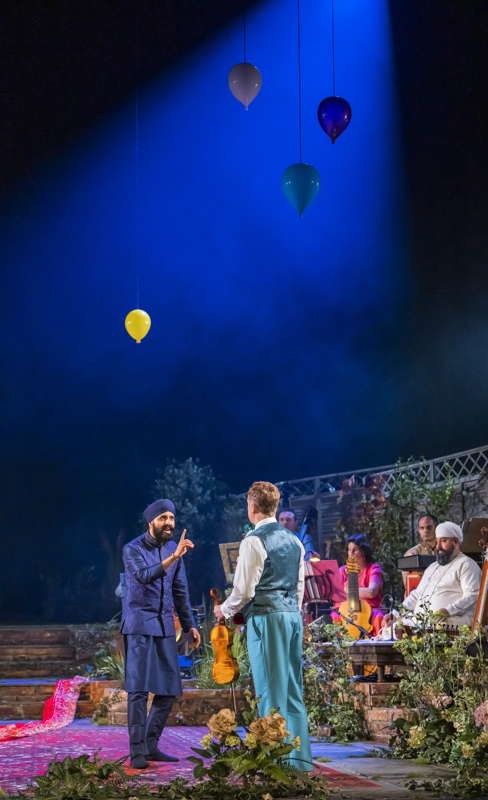
Kaviraj Singh as Caronte and Nicholas Watts as Orpheus. Photo © 2022 Tristram Kenton
Act IV finds him in Hades, facing the presiding deities - Chandra Chakraborty a compassionate Proserpina to Dean Robinson's black-toned Pluto. Back in the urban garden for Act V, Orpheus has defied Pluto's injunction not to look back at Euridice as he leads her out, so losing her a second time. He turns for consolation to his father/guru, Apollo, who assures him of his immortality among the gods, so ending the opera with another celebration. At its height Chiranjeeb Chakraborty and Vijay Rajput, as two of the shepherds, launched into an electrifying drum duet, serving as a sustained release of pent-up energy.
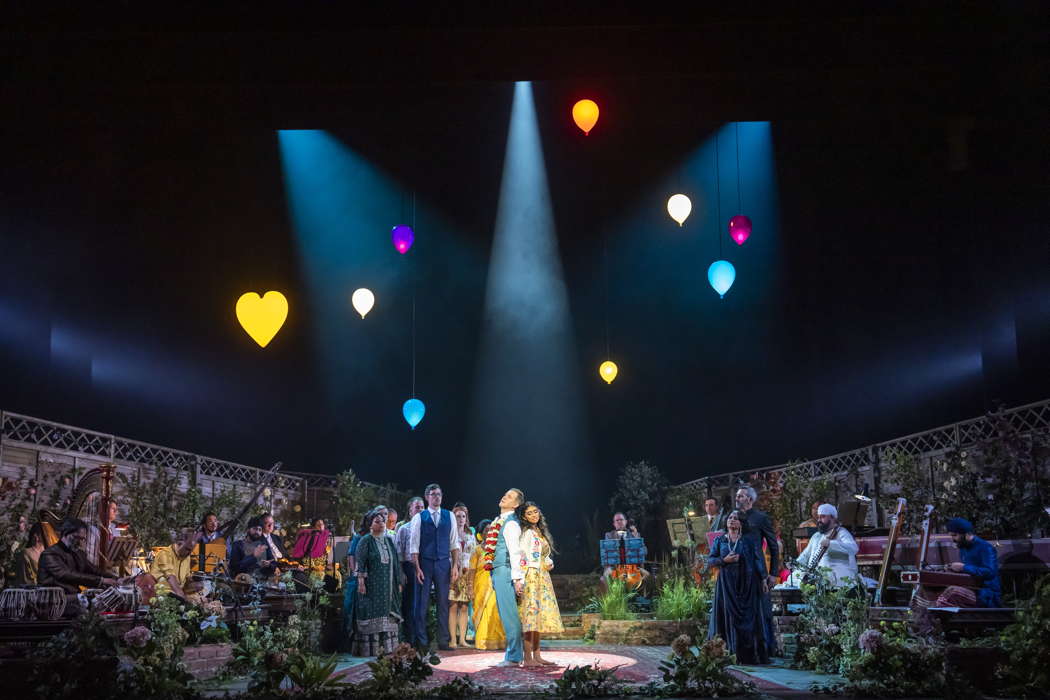
Nicholas Watts as Orpheus and Ashnaa Sasikaran as Eurydice with the Orpheus company. Photo © 2022 Tristram Kenton
Musical direction was shared between harpsichordist Laurence Cummings, who also sang one of the shepherds, and Opera North's current Artist in Residence, sitar player Jasdeep Singh Degun, who also composed some of the music. Ashok Gupta was assistant conductor and second harpsichordist. The opera was sung in a mixture of Italian, Hindi and Urdu, all with English side-titles. Jackie Shemesh's lighting and Urja Desai Thakore's choreography complemented everything perfectly.
A triumph on every conceivable level.
Copyright © 4 December 2022
Mike Wheeler,
Derby UK




